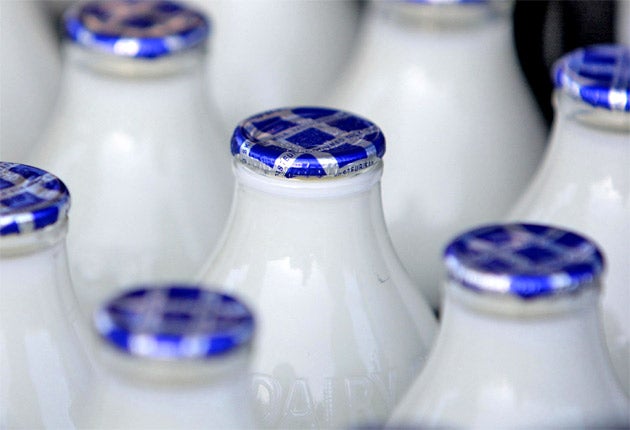Babies at risk as girls fail to get enough iodine
70 per cent of schoolgirls aged 14-15 had levels below 100 micrograms per litre, or a mild deficiency

Your support helps us to tell the story
From reproductive rights to climate change to Big Tech, The Independent is on the ground when the story is developing. Whether it's investigating the financials of Elon Musk's pro-Trump PAC or producing our latest documentary, 'The A Word', which shines a light on the American women fighting for reproductive rights, we know how important it is to parse out the facts from the messaging.
At such a critical moment in US history, we need reporters on the ground. Your donation allows us to keep sending journalists to speak to both sides of the story.
The Independent is trusted by Americans across the entire political spectrum. And unlike many other quality news outlets, we choose not to lock Americans out of our reporting and analysis with paywalls. We believe quality journalism should be available to everyone, paid for by those who can afford it.
Your support makes all the difference.A generation of schoolgirls are growing up deficient in the vital mineral, iodine, putting their unborn children at risk, a study has found.
Seven out of 10 teenage girls were found to be deficient in the mineral in a UK-wide survey which the researchers say is of "potential major public health importance". Iodine is essential for the neurological development of the foetus. The results suggest at least 100,000 babies may be intellectually handicapped annually.
The shock finding has come after decades in which iodine levels in the UK population were thought to be adequate. "We were lulled into a false sense of security" said Mark Vanderpump, of the Royal Free Hampstead NHS Trust who led the study
Commenting on the findings, published today in The Lancet, a US expert in endocrinology says it is "unconscionable" that a country like the UK should be iodine deficient in the 21st century. Elizabeth Pearce of the University of Boston calls for all salt sold in the UK to be iodised in line with practice in other countries and recommends pregnant women take a vitamin supplement including the mineral.
Iodine is essential for the manufacture of the hormone thyroxine in the body which controls the metabolic rate, affecting growth and development. But its most crucial role is in the development of the brain and nervous system of the foetus in the womb.
Evidence shows that iodine deficiency in pregnant women can cause "significant mental impairment" and delayed development in their children. Moderate to severe deficiency – less than half the recommended level – can reduce IQ by 10-15 points.
Researchers from the Royal Free Hospital, London, measured iodine levels in the urine of 664 girls aged 14-15 from nine towns in the UK. Results showed some 70 per cent had levels below 100 micrograms per litre, defined as mild deficiency by the World Health Organisation.
Moderate deficiency, below 50 micrograms per litre, was found in 16 per cent of the girls and severe deficiency, below 20 micrograms, in 1 per cent. This implies that at least 100,000 babies born in Britain each year have a lower IQ as a result of lack of iodine.
Deficiency of the mineral was widespread in the UK in the first half of the 20th century but that improved in the 1940s when farming practices changed. A key source of iodine is milk, and levels in the population rose when farmers began using artificial feed for cattle in winter reinforced with iodine, and a disinfectant containing iodine for washing the cows' udders.
Successive UK governments encouraged milk consumption by school children from the 1940s. But the Labour prime minister Harold Wilson removed the daily milk quota from secondary school children in the 1960s and Margaret Thatcher withdrew it from primary schoolchildren as education secretary in the 1970s.
Writing in The Lancet, Dr Vanderpump and colleagues say falling milk consumption is the most likely explanation for the decline in iodine levels. "A cupful of milk a day gives you half the iodine you need," Dr Vanderpump said. The World Health Organisation recommended iodisation of salt in the 1940s but Britain chose not to comply. In the US 70 per cent of salt is iodised and in Australia and New Zealand salt used in commercially baked bread is iodised.
Iodine in food
The richest sources of iodine are fish and milk. A cupful of milk provides half the daily requirement for iodine.
A 4 to 6 oz serving of fish will also provide at least half the requirement, though the iodine content of fish can vary widely. Other sources include sea salt, sea vegetables such as seaweed, yogurt, eggs and strawberries.
Join our commenting forum
Join thought-provoking conversations, follow other Independent readers and see their replies
Comments